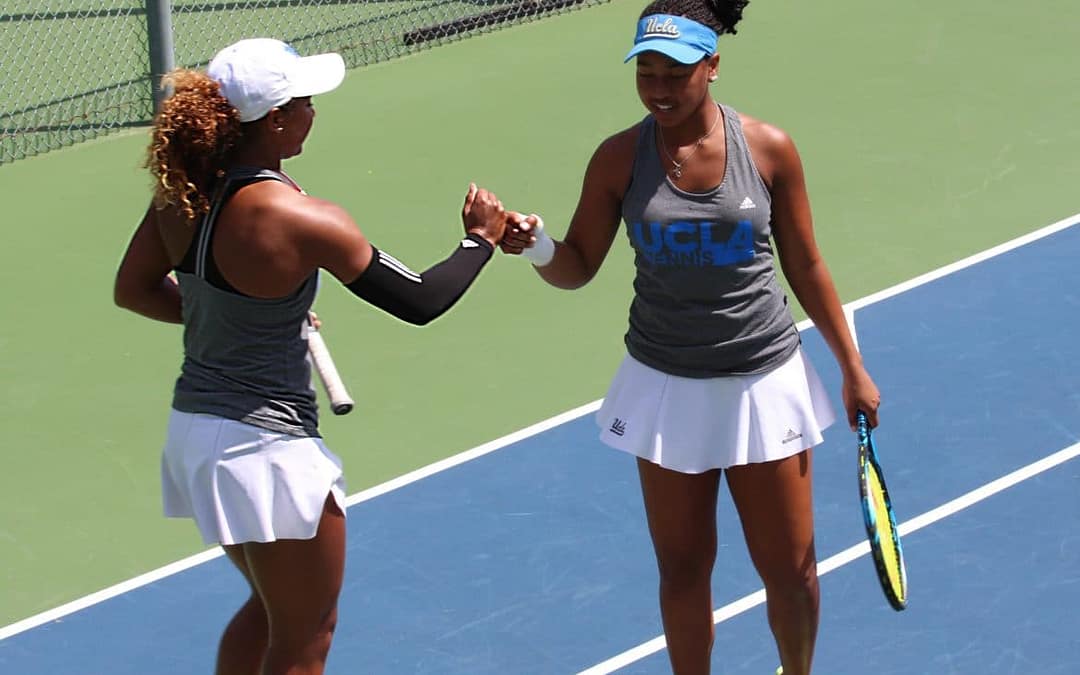Too often athletes see nutrition as the science of supplements, “pills and powders instead of real food.” But nutrition is more than how many scoops of protein powder you dump into your post-workout shake; it’s everything you drink, eat (or don’t drink and eat) to fuel your body. Proper nutrition primes your body for peak performance and helps prevent injury. Poor nutrition undermines performance and makes your body vulnerable to injury.
During the day, our soft tissues—like the muscles and fascia— endure numerous different microinjuries: chemical exposure, radiation from the sun, and of course all the mechanical stress from all those hours on the court. Then, at night, our body repairs what it can. However, without the molecules from proteins, carbohydrates, and fats, the body can’t do its job. It’s like trying to repair a drywall hole without tape and compound. Now, the body will compensate—for a time. However, if young women continually deprive themselves of proper nutrition, not only will their unrepaired microinjuries start accumulating, they’ll stop menstruating. And when they stop menstruating, it affects their hormone balance, which in turn affects their bone-mineralization, predisposing them to injuries like stress fractures. Just like performance, healing requires both energy and nutrients. Just think about this: “an athlete’s metabolic rate increases approximately 15% to 20% after injury or minor surgery” and “[m]ajor surgery can increase these needs by almost 50%.” So if you want to ensure your athlete stays healthy, you first need to ensure that she’s eating well.
Eating Enough
Your athlete doesn’t just need to eat well—she needs to eat enough. This may seem pretty basic, but consider that, “[t]hroughout the world, more college-age females than males at every decile of body mass index perceive themselves to be overweight” or that “nine times as many young lean women as men are actively trying to lose weight.” While our young women are training to be their best, they’re also being told they need to look a certain way, that they’re too tall, too wide, or not quite feminine enough. This pressure often leads them to eat far less than they need, depriving them of the nutrition necessary for injury repair and peak performance.
Its most extreme forms are eating disorders like anorexia and bulimia, serious psychiatric conditions that can actually be life-threatening, and which disproportionately affects young women. So if you suspect your athlete has an eating disorder, get outside help—and fast.
Yet all coaches, even those with healthy athletes, have an opportunity to influence the culture of women’s tennis, to help shift the focus away from physical appearance towards what really matters: health.
Some Simple Rules for Eating Well
If it wasn’t already before, it should be pretty clear now why your player needs to eat well. But what does eating well mean, exactly? Well, that’s not such a simple thing to answer, but here are a few quick tips to get you started:
- Eat breakfast
A lot of players, especially teenagers, can’t be bothered with breakfast, but it’s always best to begin the day with some gas in the tank. I recommend a mix of protein and complex carbohydrates, like oatmeal.
- Don’t skip the carbs.
If your athlete’s spending hours each day hitting hundreds of forehands, she needs to be eating carbs. But don’t take my word for it. In 2016, Dr. June Kloubec and Dr. Cristen Harris published “Whole Foods Nutrition for Injury Prevention and Healing” in ACSM’s Health and Fitness Journal, in which they explained: “[c]arbohydrate ingestion shortly after prolonged and/or exhaustive exercise helps replenish muscle glycogen stores, thus providing energy to refuel muscles for the next exercise bout and to repair those same muscles.”
- Many small meals are better than fewer big meals
Don’t fast all day only to gorge yourself sick at an all-you-can-eat mall buffet at dinnertime. Instead, spread your meals throughout the day. Kloubec and Harris say the same goes for protein: “To ensure optimal healing, athletes should consume protein consistently and distribute it evenly throughout the day at 20 to 30g per meal or snack, rather than back-loading protein at dinner.”
- Eat real food
And the most important tip? Eat real food and avoid processed crap loaded with excess salt, fat, and sugar. As Dr. Aaron E. Carroll suggested in the New York Times, you should get “as much as your nutrition as possible from completely unprocessed foods. These include fruits and vegetables. But they also include meat, fish, poultry and eggs that haven’t been processed.” Like food reporter Michael Pollan always says, “Eat food. Not too much. Mostly plants.”
Looking for something more thorough? These dietary guidelines from Brazil’s Ministry of Health are a great place to start.
Take control of your recovery—Download Dr. Erin B’s “Movement Cure” eBook today!

